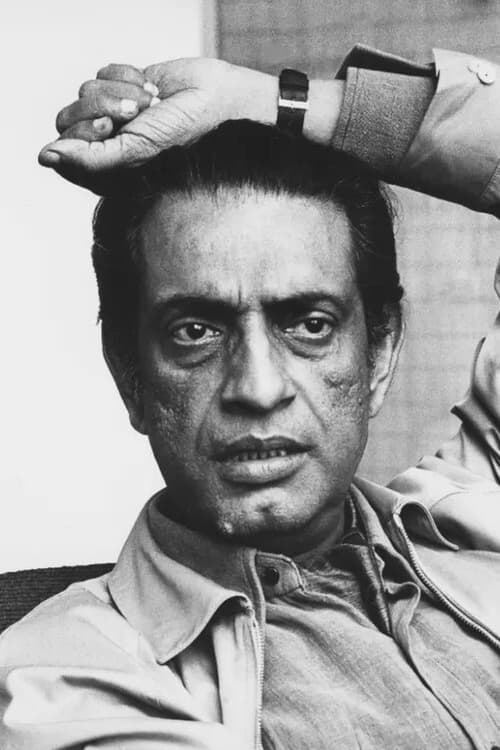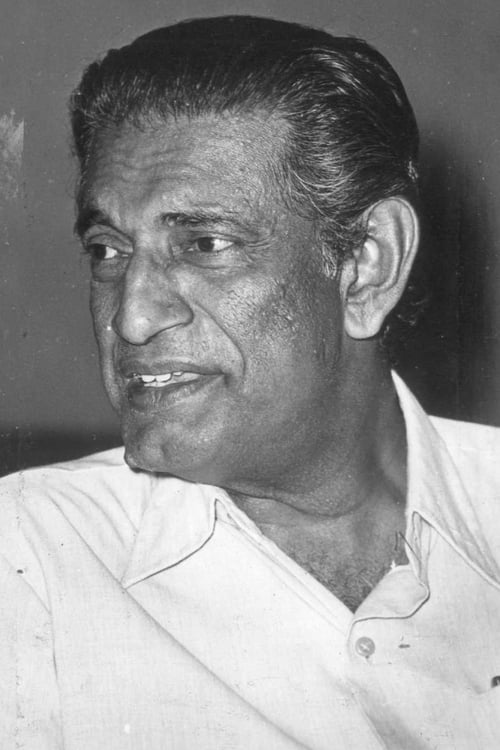
Novel
In this case, Feluda, Topshe and Jatayu go to Srinagar and Kashmir where they come across a spine chilling mystery. They meet a retired judge, Siddheshwar Mallick, and his group who have also come for a holiday. They travel together to Gulmarg, Khilanmarg and Pahalgam. The judge has given death sentence to many convicts in a career spanning three decades and wants to find out whether he had made a mistake in doing so by calling the spirits of those convicts by planchette. The judge suffers from angina due to which he had to voluntarily retire at the age of 65 and he has a son, who is addicted to gambling. He finds out that he had misjudged two of his cases, one of a Bihari and another of a Kashmiri. In the meanwhile, there are life attempts on the judge's son Vijay and on Feluda twice. Soon after, during Pahalgam visit, the judge gets murdered and a precious diamond ring worn on his right hand gets stolen.

Story
Feluda and Topshe travel to Gangtok for their winter holidays at the start of the new year. While eating breakfast at the Bagdogra Airport, they meet a man named Sasadhar Bose, who works for a chemical firm dealing with aromatic perfumes. He tells that he had attended a nephew's wedding in Ghatshila and had come to visit Sikkim. While stopping at a place called Teesta Bazaar, the trio learns of an accident which occurred on the North Sikkim Highway. They learn that a huge boulder had hit a taxi and the taxi had fallen off a cliff. But the driver had escaped unhurt. Feluda and Topshe are staying at Hotel Snow View while Sasadhar Bose is staying at the dak bungalow. In the evening, Sasadhar Bose comes to Feluda's hotel and informs him that the man who fell down the cliff in the accident, was his partner Shivkumar Shelvankar, who was also the owner of the company. Sasadhar Bose walks out of the hotel to find a flight to Bombay the next day.

Writer
Pradosh C. Mitter AKA Feluda, Topshe, and Lalmohan Ganguly go to Puri for vacation. One evening, the trio spot odd footprints on the sand. Later, Lalmohan goes to meet Lakshman, an astrologer who is presumably gifted with extrasensory perception. Soon they stumble upon Roopchand's dead body lying on the beach. Feluda figures out the mystery and gathers everyone at Bhujanga Niwas and tells everyone that Bilas Majumdar is actually Animesh Kumar Sarkar, a smuggler by profession. Feluda tells them that the actual Bilas Majumdar had died three weeks ago in a hospital in Nepal. Why?

Author
After decades of working in the printing industry in Kolkata in eastern India, Tarini has reached retirement age. He spends his days at home, having declined his son’s invitation to come to the United States. Then a friend shows him a help-wanted ad. Although he has never published a book, Tarini used to tell made-up stories to his friends in his youth, and the ad for a storyteller in Ahmedabad in western India piques his interest.

Author
The suave Prodosh C. Mitter aka Feluda has ruled over our hearts with his sharp wit, impressive intellect and astute observation skills for over five decades now! The story starts off with the murder of Birupaksha Majumdar by Vishnudas Balaporia in the cold Darjeeling Mountains. Feluda, Topshey and Lalmohun Ganguly investigate.

Writer
A modern adaptation of Satyajit Ray's classic short story

Self (archive footage)
A biographical documentary film about the legendary Indian filmmaker Satyajit Ray, to commemorate Ray's centenary year. The film covers Ray's life and early works, focusing on the making of his first film Pather Panchali.

Self (archival footage)
A documentary exploring the 50-year legacy of Bengali fictional detective Feluda, created by Satyajit Ray.

Novel
A Hindi teacher rents a robot to work in his home.

Music
The movie consists of two Feluda stories by Satyajit Ray, Samaddar-er-Chabi and Golokdham Rahashya, shown on either half of the film. It was a tribute to the 50-year anniversary of Feluda and a sequel to Royal Bengal Rahashya (2011).

Novel
The movie consists of two Feluda stories by Satyajit Ray, Samaddar-er-Chabi and Golokdham Rahashya, shown on either half of the film. It was a tribute to the 50-year anniversary of Feluda and a sequel to Royal Bengal Rahashya (2011).
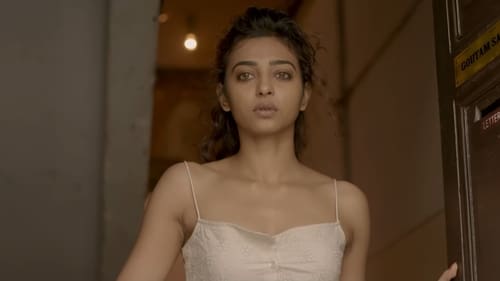
Writer
Ahalya, set as a modern-day thriller, is an ode to a legend from Ramayana. The 14-minute-long film replays the deadly game of Gods, spinning a web of intrigue, seduction, desire and mystery between Gods and Apsaras. Ahalya is a deadly game you can’t escape.
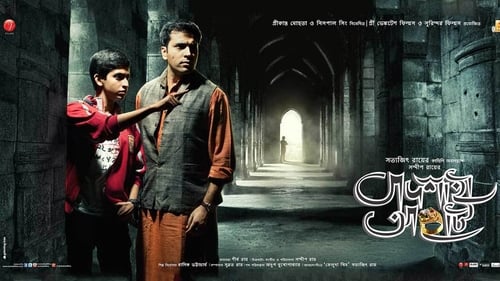
Novel
Feluda and his cousin Topshe goes to Lucknow with Topshe's father to spend the Puja vacation. They arrived at the house of Dhirendra Kumar Sanyal, a friend of Topshe's father. That evening Dr. Shrivastav also came to Dhirendra Kumar Sanyal and tells him about last night, a thief tried to steal his 'Ring of Aurangzeb' (The Emperor's Ring) which was given to him by Pyarilaal Seth. After the incident Dr. Shrivastav has been afraid and asks Dhirendra Kumar Sanyal to keep the ring safe. Dhirendra Kumar Sanyal agreed and keeps the ring to his home. But someday the ring goes missing from there. Then Feluda and Topshe started investigation for the culprit. Meanwhile, Feluda meets an interesting person in doctor's neighborhood, Mr. Bonobihari Sarkar. Bonobihari babu has ferocious and poisonous creatures like crocodile, African tiger, hyena, rattlesnake, scorpion and black widow spider in his own home.

Story
Chaar (English: Four) is a Bengali anthology film, directed by Sandip Ray and produced by Shrikant Mohta, Mahendra Soni and Nispal Singh under the banner of Shree Venkatesh Films and Surinder Films. It based on four stories by different writers- Bateswarer Abodan by Parasuram, Porikkha by Sharadindu Bandyopadhyay, Kagtarua and Dui Bondhu by Satyajit Ray.

Story
Sandip Ray's next where 4 ghost stories are spun together in a comical twist surrounding unusual events.The film is a collection of four short films based on four Bengali short stories- Sharadindu Bandyopadhyay's - Bhut Bhabishyat, Satyajit Ray's- Brown Saheber Bari, Anath Babur Bhoy and Lucknow-er Duel.

Novel
Feluda alias Pradosh Mitra, a private detective is invited by a rich former Zamindar (and a retired big game hunter) in North Bengal. The task is to solve a riddle which was written by an ancestor long time ago. The riddle ostensibly contains clue to finding hidden treasure that belongs to the family of the Zamindar. When Tarit Sengupta, the personal secretary of the Zamindar is killed in mysterious circumstances, Feluda finds out that Tarit had already solved the riddle, and was in the process of stealing the treasure when he was killed. Then the mystery thickens as there are many suspects. At the end the man-eating Tiger appears to give the story a new dimension. How does Feluda Solve it? See it to believe. The mastery of Satyajit Rays's writing and direction of Sandip Ray can be seen here.

Novel
By accident, more than anything else, the three find themselves beside the grave of Thomas Godwin. The grave was dug up by some miscreants for unknown reasons. The rather colorful history of Mr. Godwin makes Feluda curious to know more about the man.From the diary of Thomas' daughter Charlotte, Feluda finds that a very precious clock went to Thomas' grave with him. To his surprise, Feluda finds that another party knows about this clock and they are trying to get it aided by the letter with them. Thanks to the brilliance of the detective and the help of 'Haripodobabu', the chauffeur of Mr. Ganguli, a new introduction in this book, their plot is foiled.

Novel
Feluda, the famous Bengali detective tackles an international buyer, a corrupt arts agent, numerous henchmen and impostors in this story that revolves around a painting of Jesus by the famous Italian painter Tintoretto.

Novel
Detective Feluda, with the help of his nephew Topshe and the writer Jatayu, investigates smuggling and illegal trading in ancient sculptures across India.
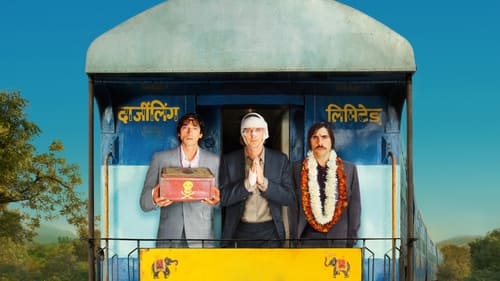
Music
父の死をきっかけに別々の道を歩みはじめ、それぞれの人生で悩み迷っていたホイットマン家の3兄弟、フランシス(オーウェン・ウィルソン)、ピーター(エイドリアン・ブロディ)、ジャック(ジェイソン・シュワルツマン)。あるとき、事故で九死に一生を得たフランシスは、兄弟のきずなを取り戻すため、弟たちをインド旅行に誘う。

Writer
Lalmohan Ganguly, alias Jatayu − a sidekick of Feluda − gets invited to Mumbai (previously Bombay) to watch the shooting of a film based on a novel written by him. Once in Mumbai, he, along with Feluda and Topshe gets embroiled with underworld kingpins. He seems to have transported the Nana Sahib's necklace. But fortunately because of Feluda the real thief is caught and convicted. Although the original story was written in the 1970s, the movie is set in more recent times and depict the real problem of underworld involvement in Bollywood.

Based on interviews with Ray himself, and packed with clips from his films, as well as rare-to-come-by footage of his recording sessions, the documentary follows Satyajit Ray’s journey as a music director and composer of his own work on screen.

Author
A hunter-cum-psychologist wants to publish a book about three of his patients who committed crimes in the past, but did not get caught. However, he gets murdered by his brother in law and now it is up to Feluda to find the murderer.

Story
While at a felicitation ceremony, Feluda, a detective, meets Joychand, a simple man who owns a pink diamond. When several buyers set their eyes on the precious stone, Feluda must save the day.

(Archive footage)
Filmmaker Catherine Berge profiles the prolific career of East Indian actor Soumitra Chatterjee.

Original Music Composer
Famous Bengali private investigator Pradosh C. Mitter (Feluda) is hired by wealthy businessman Dinnanath Lahiri. His suitcase has been accidentally exchanged with someone on the Kalka Mail. Inside it is a valuable manuscript written by Shambucharan Bose. The case takes Feluda, Topshe and Jatayu to Shimla, where they discover a priceless diamond in a film container, disguised as a betel - nut. 'The Three Musketeers' face great danger in Shimla, before Feluda eventually solves the case.

Writer
Famous Bengali private investigator Pradosh C. Mitter (Feluda) is hired by wealthy businessman Dinnanath Lahiri. His suitcase has been accidentally exchanged with someone on the Kalka Mail. Inside it is a valuable manuscript written by Shambucharan Bose. The case takes Feluda, Topshe and Jatayu to Shimla, where they discover a priceless diamond in a film container, disguised as a betel - nut. 'The Three Musketeers' face great danger in Shimla, before Feluda eventually solves the case.

Story
Feluda is called to Gosaipur by Jiban Mallick, the son of the local Zamindar Shyamlal Mallick to investigate a threat of his father's life. Everyone in the village knows that father and the son are at loggerheads. Shyamlal is also an eccentric who eschews anything modern. Then, instead of Syamlal, his son Jiban Mallick is killed and the wealth of Mallick's looted. Oddly though, the dead body of Jiban Mallick vanishes, only to reappear again. Feluda works this out with a mixture of investigating skills and deception.

Writer
Sen Gupta, a doctor who only treats upper-class patients, is forced to confront his own moral and medical beliefs as he discovers rural India during an unexpected stop at a village. He finds a breathless man lying on the side of the road. With little sympathy, the doctor sends him back to his own village for treatment. When Dr. Gupta discovers that the villages wants a witch doctor to treat the man, he attends the exorcism and is shocked. A transformation of the cold city man then follows.

Original Music Composer
Goopy Bagha Phire Elo (Bengali: গুপী বাঘা ফিরে এলো) (1992) is the third sequel of Goopy Gyne Bagha Byne series. It was directed by Sandip Ray and written by his father Satyajit Ray. This film was released eleven years after its predecessor Hirak Rajar Deshe.

Writer
Goopy Bagha Phire Elo (Bengali: গুপী বাঘা ফিরে এলো) (1992) is the third sequel of Goopy Gyne Bagha Byne series. It was directed by Sandip Ray and written by his father Satyajit Ray. This film was released eleven years after its predecessor Hirak Rajar Deshe.
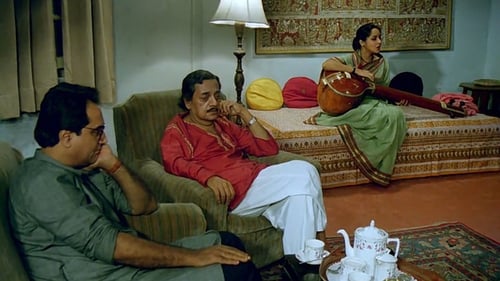
Story
A well-off Indian family is paid an unexpected, and rather unwanted, visit by a man claiming to be the woman's long lost uncle. The initial suspicion with which they greet the man slowly dissolves as he regales them with stories of his travels, tales that are at odds with their conventional middle class perspective on the world.

Original Music Composer
A well-off Indian family is paid an unexpected, and rather unwanted, visit by a man claiming to be the woman's long lost uncle. The initial suspicion with which they greet the man slowly dissolves as he regales them with stories of his travels, tales that are at odds with their conventional middle class perspective on the world.

Producer
A well-off Indian family is paid an unexpected, and rather unwanted, visit by a man claiming to be the woman's long lost uncle. The initial suspicion with which they greet the man slowly dissolves as he regales them with stories of his travels, tales that are at odds with their conventional middle class perspective on the world.

Screenplay
A well-off Indian family is paid an unexpected, and rather unwanted, visit by a man claiming to be the woman's long lost uncle. The initial suspicion with which they greet the man slowly dissolves as he regales them with stories of his travels, tales that are at odds with their conventional middle class perspective on the world.

Director
A well-off Indian family is paid an unexpected, and rather unwanted, visit by a man claiming to be the woman's long lost uncle. The initial suspicion with which they greet the man slowly dissolves as he regales them with stories of his travels, tales that are at odds with their conventional middle class perspective on the world.

Screenplay
When a wealthy patriarch falls ill on his 70th birthday, three of his sons rush in from Calcutta, leading to a reunion filled with painful ironies and lingering disillusionment. As the family—including an addled fourth son (Soumitra Chatterjee) who lives with the old man—watches and waits, the static occasion brings out simmering tensions in their family dynamics, from the father’s moral rectitude to the business ambition of two sons and the withdrawal of their siblings.

Story
When a wealthy patriarch falls ill on his 70th birthday, three of his sons rush in from Calcutta, leading to a reunion filled with painful ironies and lingering disillusionment. As the family—including an addled fourth son (Soumitra Chatterjee) who lives with the old man—watches and waits, the static occasion brings out simmering tensions in their family dynamics, from the father’s moral rectitude to the business ambition of two sons and the withdrawal of their siblings.

Original Music Composer
When a wealthy patriarch falls ill on his 70th birthday, three of his sons rush in from Calcutta, leading to a reunion filled with painful ironies and lingering disillusionment. As the family—including an addled fourth son (Soumitra Chatterjee) who lives with the old man—watches and waits, the static occasion brings out simmering tensions in their family dynamics, from the father’s moral rectitude to the business ambition of two sons and the withdrawal of their siblings.

Director
When a wealthy patriarch falls ill on his 70th birthday, three of his sons rush in from Calcutta, leading to a reunion filled with painful ironies and lingering disillusionment. As the family—including an addled fourth son (Soumitra Chatterjee) who lives with the old man—watches and waits, the static occasion brings out simmering tensions in their family dynamics, from the father’s moral rectitude to the business ambition of two sons and the withdrawal of their siblings.

Original Music Composer
Ashoke Gupta is an idealistic doctor working in a town near Calcutta. He discovers that the water at a popular temple is the source of an outbreak of typhoid and hepatitis. In order to save lives, he risks his career to try and call attention to this polluted water source, while a local group of building contractors attempt to discredit him in various ways.

Screenplay
Ashoke Gupta is an idealistic doctor working in a town near Calcutta. He discovers that the water at a popular temple is the source of an outbreak of typhoid and hepatitis. In order to save lives, he risks his career to try and call attention to this polluted water source, while a local group of building contractors attempt to discredit him in various ways.

Director
Ashoke Gupta is an idealistic doctor working in a town near Calcutta. He discovers that the water at a popular temple is the source of an outbreak of typhoid and hepatitis. In order to save lives, he risks his career to try and call attention to this polluted water source, while a local group of building contractors attempt to discredit him in various ways.

Original Music Composer
The film presents the life and work of the writer Sukumar Ray, Satyajit Ray's father. Ray made this film as a tribute to celebrate the centenary of his birth.

Screenplay
The film presents the life and work of the writer Sukumar Ray, Satyajit Ray's father. Ray made this film as a tribute to celebrate the centenary of his birth.

Director
The film presents the life and work of the writer Sukumar Ray, Satyajit Ray's father. Ray made this film as a tribute to celebrate the centenary of his birth.
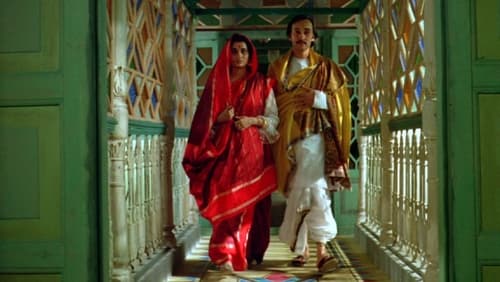
Original Music Composer
When the movie opens, a woman is recalling the events that molded her perspective on the world. Years ago, her husband, a wealthy Western-educated landowner, challenged tradition by providing her with schooling, and inviting her out of the seclusion in which married women were kept, to the consternation of more conservative relatives. Meeting her husband's visiting friend from college, a leader of an economic rebellion against the British, she takes up his political cause, despite her husbands warnings. As the story progresses, the relationship between the woman and the visitor becomes more than platonic, and the political battles, pitting rich against poor and Hindu against Moslem, turn out not to be quite as simple as she had first thought.

Screenplay
When the movie opens, a woman is recalling the events that molded her perspective on the world. Years ago, her husband, a wealthy Western-educated landowner, challenged tradition by providing her with schooling, and inviting her out of the seclusion in which married women were kept, to the consternation of more conservative relatives. Meeting her husband's visiting friend from college, a leader of an economic rebellion against the British, she takes up his political cause, despite her husbands warnings. As the story progresses, the relationship between the woman and the visitor becomes more than platonic, and the political battles, pitting rich against poor and Hindu against Moslem, turn out not to be quite as simple as she had first thought.

Director
When the movie opens, a woman is recalling the events that molded her perspective on the world. Years ago, her husband, a wealthy Western-educated landowner, challenged tradition by providing her with schooling, and inviting her out of the seclusion in which married women were kept, to the consternation of more conservative relatives. Meeting her husband's visiting friend from college, a leader of an economic rebellion against the British, she takes up his political cause, despite her husbands warnings. As the story progresses, the relationship between the woman and the visitor becomes more than platonic, and the political battles, pitting rich against poor and Hindu against Moslem, turn out not to be quite as simple as she had first thought.

Documentary on director Satyajit Ray, featuring an extensive interview and clips from his films, and location shooting of his film "The Home and the World."

Writer
A day in the life of a six-year-old child in Calcutta, who lives shut up in the family home, insulated from the city by a park. The father is away at work. The grandfather is alone in his room, ill and confined to his bed. The mother receives her lover.

Director
A day in the life of a six-year-old child in Calcutta, who lives shut up in the family home, insulated from the city by a park. The father is away at work. The grandfather is alone in his room, ill and confined to his bed. The mother receives her lover.

Original Music Composer
When a poor and out-caste village tanner goes to village priest to get the date of his daughter's marriage fixed, the priest in turn asks for labor without pay in exchange.

Screenplay
When a poor and out-caste village tanner goes to village priest to get the date of his daughter's marriage fixed, the priest in turn asks for labor without pay in exchange.

Director
When a poor and out-caste village tanner goes to village priest to get the date of his daughter's marriage fixed, the priest in turn asks for labor without pay in exchange.
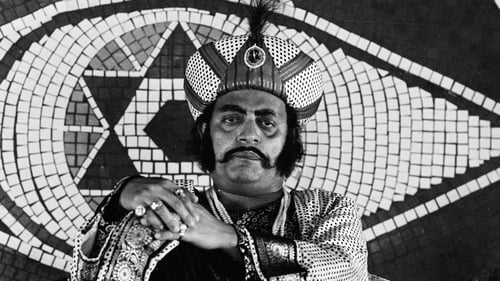
Original Music Composer
When Goopy and Bagha learn about Hirak Raja's tyranny, they try to set him right with the help of Udayan, a school teacher, and their magical powers.

Writer
When Goopy and Bagha learn about Hirak Raja's tyranny, they try to set him right with the help of Udayan, a school teacher, and their magical powers.

Director
When Goopy and Bagha learn about Hirak Raja's tyranny, they try to set him right with the help of Udayan, a school teacher, and their magical powers.
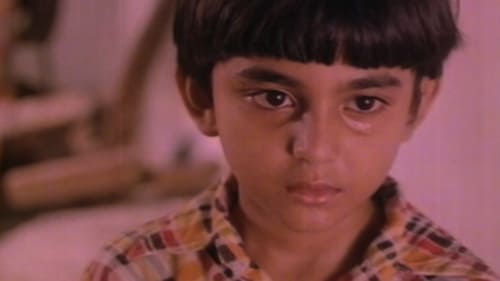
Original Music Composer
Set in the holy city of Benares, this is the second film about the detective Feluda, in which he goes for a holiday along with his cousin, Topshe and his friend, Lalmohan Ganguly. But the theft of a priceless deity of Lord Ganesh (the Elephant God) from a local household forces him to investigate.

Screenplay
Set in the holy city of Benares, this is the second film about the detective Feluda, in which he goes for a holiday along with his cousin, Topshe and his friend, Lalmohan Ganguly. But the theft of a priceless deity of Lord Ganesh (the Elephant God) from a local household forces him to investigate.

Novel
Set in the holy city of Benares, this is the second film about the detective Feluda, in which he goes for a holiday along with his cousin, Topshe and his friend, Lalmohan Ganguly. But the theft of a priceless deity of Lord Ganesh (the Elephant God) from a local household forces him to investigate.

Director
Set in the holy city of Benares, this is the second film about the detective Feluda, in which he goes for a holiday along with his cousin, Topshe and his friend, Lalmohan Ganguly. But the theft of a priceless deity of Lord Ganesh (the Elephant God) from a local household forces him to investigate.
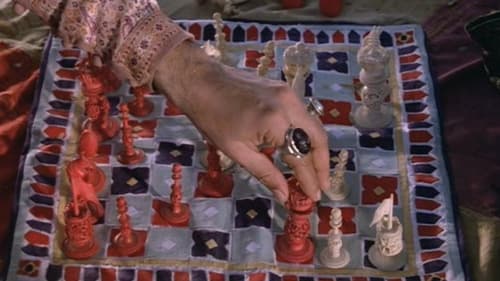
Original Music Composer
It is the year 1856. Nawab Wajid Ali Shah is the king of Awadh, one of the last independent kingdoms of India. The British colonialists, intent on controlling this rich land, have sent general Outram on a secret mission to clear the way for an annexation. Pressure is mounting amidst intrigue and political manoeuvres, but the Nawab whiles away his time in pursuit of pleasure and religious practice. The court is of no help either—Court nobles Mir and Mirza, ignoring the situation of their country and all their duties towards their families, spend their days playing endless games of chess. The film is based on Munshi Premchand's short story of the same name.

Dialogue
It is the year 1856. Nawab Wajid Ali Shah is the king of Awadh, one of the last independent kingdoms of India. The British colonialists, intent on controlling this rich land, have sent general Outram on a secret mission to clear the way for an annexation. Pressure is mounting amidst intrigue and political manoeuvres, but the Nawab whiles away his time in pursuit of pleasure and religious practice. The court is of no help either—Court nobles Mir and Mirza, ignoring the situation of their country and all their duties towards their families, spend their days playing endless games of chess. The film is based on Munshi Premchand's short story of the same name.

Screenplay
It is the year 1856. Nawab Wajid Ali Shah is the king of Awadh, one of the last independent kingdoms of India. The British colonialists, intent on controlling this rich land, have sent general Outram on a secret mission to clear the way for an annexation. Pressure is mounting amidst intrigue and political manoeuvres, but the Nawab whiles away his time in pursuit of pleasure and religious practice. The court is of no help either—Court nobles Mir and Mirza, ignoring the situation of their country and all their duties towards their families, spend their days playing endless games of chess. The film is based on Munshi Premchand's short story of the same name.

Director
It is the year 1856. Nawab Wajid Ali Shah is the king of Awadh, one of the last independent kingdoms of India. The British colonialists, intent on controlling this rich land, have sent general Outram on a secret mission to clear the way for an annexation. Pressure is mounting amidst intrigue and political manoeuvres, but the Nawab whiles away his time in pursuit of pleasure and religious practice. The court is of no help either—Court nobles Mir and Mirza, ignoring the situation of their country and all their duties towards their families, spend their days playing endless games of chess. The film is based on Munshi Premchand's short story of the same name.
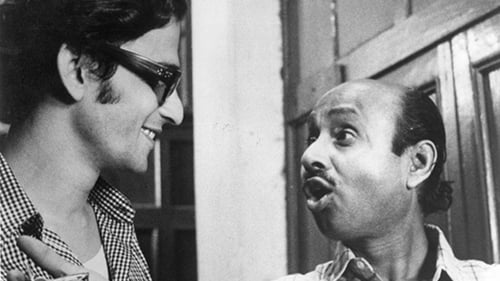
Original Music Composer
A bright and idealistic young graduate steels himself for a dog-eat-dog world, only to flounder in a job market packed with thousands of other hopefuls. When he eventually decides to start his own business as a middle-man, he discovers that the world of business does not live up to his lofty ideals.

Screenplay
A bright and idealistic young graduate steels himself for a dog-eat-dog world, only to flounder in a job market packed with thousands of other hopefuls. When he eventually decides to start his own business as a middle-man, he discovers that the world of business does not live up to his lofty ideals.

Director
A bright and idealistic young graduate steels himself for a dog-eat-dog world, only to flounder in a job market packed with thousands of other hopefuls. When he eventually decides to start his own business as a middle-man, he discovers that the world of business does not live up to his lofty ideals.

Screenplay
A documentary about the aging prima ballerina Balasaraswati (popularly known as "Bala"), the most famous exponent of the Bharatanatyam dance.

Director
A documentary about the aging prima ballerina Balasaraswati (popularly known as "Bala"), the most famous exponent of the Bharatanatyam dance.

Original Music Composer
A young boy becomes a target for crooks, after he claims to remember his past life and mentions precious jewels in a golden fortress.

Writer
A young boy becomes a target for crooks, after he claims to remember his past life and mentions precious jewels in a golden fortress.

Director
A young boy becomes a target for crooks, after he claims to remember his past life and mentions precious jewels in a golden fortress.
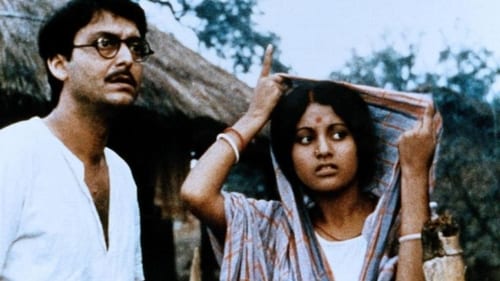
Original Music Composer
Gangacharan is the new Brahmin of a village, where he assumes various duties: teaching, organizing religious events, and trying to prevent epidemics. But in that year 1943, war is raging (as reminded by the planes occasionally heard flying over the countryside), and a major famine is under way. As food shortages reach catastrophic proportions, Gangacharan attempts to preserve his privileged situation, while his generous wife, Ananga, conversely tries to help and support the community.

Screenplay
Gangacharan is the new Brahmin of a village, where he assumes various duties: teaching, organizing religious events, and trying to prevent epidemics. But in that year 1943, war is raging (as reminded by the planes occasionally heard flying over the countryside), and a major famine is under way. As food shortages reach catastrophic proportions, Gangacharan attempts to preserve his privileged situation, while his generous wife, Ananga, conversely tries to help and support the community.

Director
Gangacharan is the new Brahmin of a village, where he assumes various duties: teaching, organizing religious events, and trying to prevent epidemics. But in that year 1943, war is raging (as reminded by the planes occasionally heard flying over the countryside), and a major famine is under way. As food shortages reach catastrophic proportions, Gangacharan attempts to preserve his privileged situation, while his generous wife, Ananga, conversely tries to help and support the community.

Narrator (voice)
At the age of 54, Binode Bihari Mukherjee, an accomplished painter, lost his sight following an unsuccessful cataract operation. He continued to create art despite his loss of sight. The documentary explores Binode Bihari’s inner eye that guides his fingers to create art.

Writer
At the age of 54, Binode Bihari Mukherjee, an accomplished painter, lost his sight following an unsuccessful cataract operation. He continued to create art despite his loss of sight. The documentary explores Binode Bihari’s inner eye that guides his fingers to create art.

Director
At the age of 54, Binode Bihari Mukherjee, an accomplished painter, lost his sight following an unsuccessful cataract operation. He continued to create art despite his loss of sight. The documentary explores Binode Bihari’s inner eye that guides his fingers to create art.

Original Music Composer
The chronicles of Shyamalendu Chatterjee, an ambitious and self-made young man, as he rises his way up the corporate ladder.

Screenplay
The chronicles of Shyamalendu Chatterjee, an ambitious and self-made young man, as he rises his way up the corporate ladder.

Director
The chronicles of Shyamalendu Chatterjee, an ambitious and self-made young man, as he rises his way up the corporate ladder.

Original Music Composer
Satyajit Ray's poetic documentary was commissioned by the Chogyal (King) of Sikkim at a time when he felt the sovereignty of Sikkim was under threat from both China and India. Ray's documentary is about the sovereignty of Sikkim. The film was banned by the government of India when Sikkim merged with India in 1975. The ban was finally lifted by the Ministry of External Affairs in September 2010.

Sound
Satyajit Ray's poetic documentary was commissioned by the Chogyal (King) of Sikkim at a time when he felt the sovereignty of Sikkim was under threat from both China and India. Ray's documentary is about the sovereignty of Sikkim. The film was banned by the government of India when Sikkim merged with India in 1975. The ban was finally lifted by the Ministry of External Affairs in September 2010.

Writer
Satyajit Ray's poetic documentary was commissioned by the Chogyal (King) of Sikkim at a time when he felt the sovereignty of Sikkim was under threat from both China and India. Ray's documentary is about the sovereignty of Sikkim. The film was banned by the government of India when Sikkim merged with India in 1975. The ban was finally lifted by the Ministry of External Affairs in September 2010.

Narrator (voice)
Satyajit Ray's poetic documentary was commissioned by the Chogyal (King) of Sikkim at a time when he felt the sovereignty of Sikkim was under threat from both China and India. Ray's documentary is about the sovereignty of Sikkim. The film was banned by the government of India when Sikkim merged with India in 1975. The ban was finally lifted by the Ministry of External Affairs in September 2010.

Director
Satyajit Ray's poetic documentary was commissioned by the Chogyal (King) of Sikkim at a time when he felt the sovereignty of Sikkim was under threat from both China and India. Ray's documentary is about the sovereignty of Sikkim. The film was banned by the government of India when Sikkim merged with India in 1975. The ban was finally lifted by the Ministry of External Affairs in September 2010.

Original Music Composer
Siddhartho Chowdhury, a brilliant medical student, is forced to leave his studies after his father's sudden demise. He is forced to navigate the high unemployment rate and the communist socio-political climate of 1960s Calcutta in search of a job.

Screenplay
Siddhartho Chowdhury, a brilliant medical student, is forced to leave his studies after his father's sudden demise. He is forced to navigate the high unemployment rate and the communist socio-political climate of 1960s Calcutta in search of a job.

Director
Siddhartho Chowdhury, a brilliant medical student, is forced to leave his studies after his father's sudden demise. He is forced to navigate the high unemployment rate and the communist socio-political climate of 1960s Calcutta in search of a job.
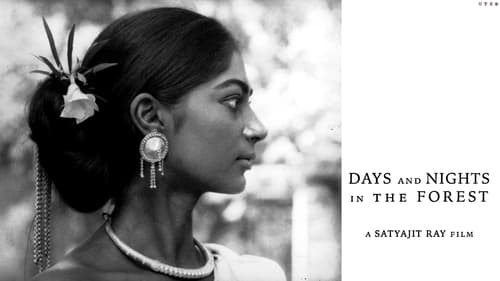
Screenplay
Four friends from Calcutta who have very different personalities make a holiday excursion into the country, to a tiny village in the state of Bihar where they set themselves up in a bungalow. A series of minor events, all connected to their respective reactions to their new environment, reveals their characters more deeply.

Original Music Composer
Four friends from Calcutta who have very different personalities make a holiday excursion into the country, to a tiny village in the state of Bihar where they set themselves up in a bungalow. A series of minor events, all connected to their respective reactions to their new environment, reveals their characters more deeply.

Director
Four friends from Calcutta who have very different personalities make a holiday excursion into the country, to a tiny village in the state of Bihar where they set themselves up in a bungalow. A series of minor events, all connected to their respective reactions to their new environment, reveals their characters more deeply.

Original Music Composer
A hilarious romantic-comedy where two people have their luggage exchanged during a train journey. One of them (Soumitra Chatterjee) is a psychiatrist, and he develops a keen interest in knowing the other party (Aparna Sen). His experience as a psychiatrist helps him to understand the happy-go-lucky and pampered Aparna Sen and woo her love.

Screenplay
A hilarious romantic-comedy where two people have their luggage exchanged during a train journey. One of them (Soumitra Chatterjee) is a psychiatrist, and he develops a keen interest in knowing the other party (Aparna Sen). His experience as a psychiatrist helps him to understand the happy-go-lucky and pampered Aparna Sen and woo her love.

Original Music Composer
Goopy Gyne and Bagha Byne are banished from their respective villages for being bad musicians. However, with their skills, they succeed in pleasing the king of ghosts who grants them three boons. How will they succeed in preventing the war between Halla and Shundi which is looming large?

Writer
Goopy Gyne and Bagha Byne are banished from their respective villages for being bad musicians. However, with their skills, they succeed in pleasing the king of ghosts who grants them three boons. How will they succeed in preventing the war between Halla and Shundi which is looming large?

Director
Goopy Gyne and Bagha Byne are banished from their respective villages for being bad musicians. However, with their skills, they succeed in pleasing the king of ghosts who grants them three boons. How will they succeed in preventing the war between Halla and Shundi which is looming large?
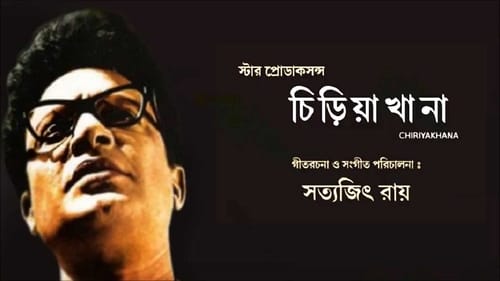
Original Music Composer
When Byomkesh Bakshi's new client, Dr. Nishanath Sen, is murdered at Golaap Colony, he decides to probe into the case with the help of his close aide, Ajit.

Screenplay
When Byomkesh Bakshi's new client, Dr. Nishanath Sen, is murdered at Golaap Colony, he decides to probe into the case with the help of his close aide, Ajit.

Director
When Byomkesh Bakshi's new client, Dr. Nishanath Sen, is murdered at Golaap Colony, he decides to probe into the case with the help of his close aide, Ajit.

Self
In 1967, Canadian documentarian James Beveridge traveled to Kolkata to film director Satyajit Ray at work. The resulting program, produced for the American public television series “The Creative Person,” features interviews with Ray, several of his actors and crew members, and film critic Chidananda Das Gupta.

Original Music Composer
Arindam, a matinee idol, is going by train to collect an acting award. On the train, he is confronted by Aditi, a journalist who somewhat unwillingly starts to take his interview. Arindam, won over by Aditi's naivete, starts to disclose his past, his fears and his secrets.

Writer
Arindam, a matinee idol, is going by train to collect an acting award. On the train, he is confronted by Aditi, a journalist who somewhat unwillingly starts to take his interview. Arindam, won over by Aditi's naivete, starts to disclose his past, his fears and his secrets.

Director
Arindam, a matinee idol, is going by train to collect an acting award. On the train, he is confronted by Aditi, a journalist who somewhat unwillingly starts to take his interview. Arindam, won over by Aditi's naivete, starts to disclose his past, his fears and his secrets.
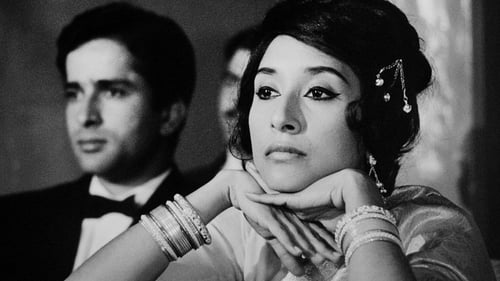
Original Music Composer
The story of a family troupe of English actors who travel around the towns and villages in India giving performances of Shakespearean plays. Through their travels we see the changing face of India as the old is replaced by the new, Maharajas become hotel owners, sports become more important than culture and the theater is replaced by Bollywood movies. Based on the travels of Geoffrey Kendal with his daughter Felicity Kendal.
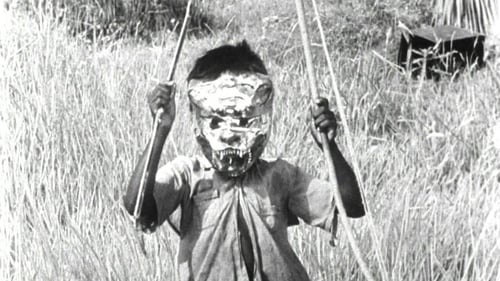
Original Music Composer
This short film shows an encounter, through a series of games, between a street child from the shantytowns and a child of a rich family, stationed at his window. The film has no dialogue and the action moves through the attempts at one-upmanship evident in their successive display of their toys. Their rivalry (a kite shot down by a toy rifle, for example) concludes with the opposition between the world of noise (the toys inside the house) and that of music (the street child's flute).

Writer
This short film shows an encounter, through a series of games, between a street child from the shantytowns and a child of a rich family, stationed at his window. The film has no dialogue and the action moves through the attempts at one-upmanship evident in their successive display of their toys. Their rivalry (a kite shot down by a toy rifle, for example) concludes with the opposition between the world of noise (the toys inside the house) and that of music (the street child's flute).

Director
This short film shows an encounter, through a series of games, between a street child from the shantytowns and a child of a rich family, stationed at his window. The film has no dialogue and the action moves through the attempts at one-upmanship evident in their successive display of their toys. Their rivalry (a kite shot down by a toy rifle, for example) concludes with the opposition between the world of noise (the toys inside the house) and that of music (the street child's flute).

Original Music Composer
Amitabha Roy is a Calcutta-based scriptwriter, driving around in the country to collect material for a film. His vehicle breaks down in a small town. A tea planter, Bimal Gupta, offers hospitality for the night. Amitabha is forced to accept the offer as he has no alternative.

Screenplay
Amitabha Roy is a Calcutta-based scriptwriter, driving around in the country to collect material for a film. His vehicle breaks down in a small town. A tea planter, Bimal Gupta, offers hospitality for the night. Amitabha is forced to accept the offer as he has no alternative.

Director
Amitabha Roy is a Calcutta-based scriptwriter, driving around in the country to collect material for a film. His vehicle breaks down in a small town. A tea planter, Bimal Gupta, offers hospitality for the night. Amitabha is forced to accept the offer as he has no alternative.

Original Music Composer
A wandering baba initiates a widower layer and his youngest daughter, irritating her boyfriend Satya and the ever-skeptical Nibaran.

Screenplay
A wandering baba initiates a widower layer and his youngest daughter, irritating her boyfriend Satya and the ever-skeptical Nibaran.

Director
A wandering baba initiates a widower layer and his youngest daughter, irritating her boyfriend Satya and the ever-skeptical Nibaran.
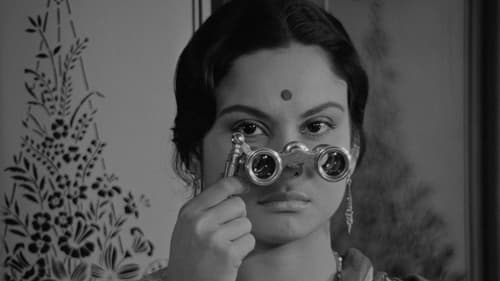
Original Music Composer
In 1870s India, Charulata is an isolated, artistically inclined woman who sees little of her busy journalist husband, Bhupati. Realizing that his wife is alienated and unhappy, he convinces his cousin, Amal, to spend time with Charulata and nourish her creative impulses. Amal is a fledgling poet himself, and he and Charulata bond over their shared love of art. But over time a sexual attraction develops, with heartbreaking results.

Screenplay
In 1870s India, Charulata is an isolated, artistically inclined woman who sees little of her busy journalist husband, Bhupati. Realizing that his wife is alienated and unhappy, he convinces his cousin, Amal, to spend time with Charulata and nourish her creative impulses. Amal is a fledgling poet himself, and he and Charulata bond over their shared love of art. But over time a sexual attraction develops, with heartbreaking results.

Director
In 1870s India, Charulata is an isolated, artistically inclined woman who sees little of her busy journalist husband, Bhupati. Realizing that his wife is alienated and unhappy, he convinces his cousin, Amal, to spend time with Charulata and nourish her creative impulses. Amal is a fledgling poet himself, and he and Charulata bond over their shared love of art. But over time a sexual attraction develops, with heartbreaking results.

Narrator
Documentary about Indian filmmaker Satyajit Ray

Editor
Follows the fortunes of a young teacher, Prem, who isn't ready to take on the responsibilities of his arranged marriage.

Screenplay
Life at home changes when a housewife from a middle-class, conservative family in Calcutta gets a job as a salesperson.

Original Music Composer
Life at home changes when a housewife from a middle-class, conservative family in Calcutta gets a job as a salesperson.

Director
Life at home changes when a housewife from a middle-class, conservative family in Calcutta gets a job as a salesperson.
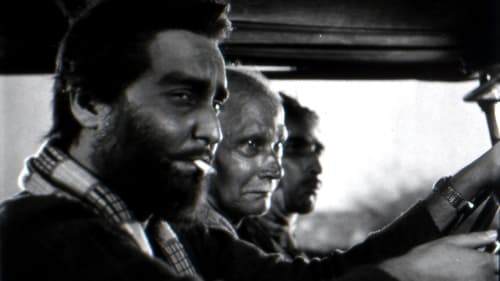
Original Music Composer
The story revolves around a North Indian taxi driver, Narsingh, who attempts to reinvent his life by visiting his native place, but instead gets embroiled in a local Marwari businessman's smuggling and human trafficking business.

Screenplay
The story revolves around a North Indian taxi driver, Narsingh, who attempts to reinvent his life by visiting his native place, but instead gets embroiled in a local Marwari businessman's smuggling and human trafficking business.

Director
The story revolves around a North Indian taxi driver, Narsingh, who attempts to reinvent his life by visiting his native place, but instead gets embroiled in a local Marwari businessman's smuggling and human trafficking business.

Original Music Composer
Played out in real time, several complex family dramas intersect in the landscape of the Himalayan foothills, allowing the Bengali auteur to examine the class and generational differences of postcolonial India while celebrating the hopes of a society in transition.

Screenplay
Played out in real time, several complex family dramas intersect in the landscape of the Himalayan foothills, allowing the Bengali auteur to examine the class and generational differences of postcolonial India while celebrating the hopes of a society in transition.

Story
Played out in real time, several complex family dramas intersect in the landscape of the Himalayan foothills, allowing the Bengali auteur to examine the class and generational differences of postcolonial India while celebrating the hopes of a society in transition.

Producer
Played out in real time, several complex family dramas intersect in the landscape of the Himalayan foothills, allowing the Bengali auteur to examine the class and generational differences of postcolonial India while celebrating the hopes of a society in transition.

Director
Played out in real time, several complex family dramas intersect in the landscape of the Himalayan foothills, allowing the Bengali auteur to examine the class and generational differences of postcolonial India while celebrating the hopes of a society in transition.

Original Music Composer
'Teen Kanya' is an anthology film based upon short stories by Rabindranath Tagore, as a tribute on the author's centenary. The title means "Three Daughters", and the film's original Indian release contained three stories, with three central female characters linking the stories together. 'The Postmaster' concerns an orphan girl who grows attached to the postmaster she is caring for after he teaches her to read and write. 'Monihara' is a supernatural tale about a woman obsessed with the jewels her husband buys for her. 'Samapti' follows a young man who falls for an unconventional girl from his new village instead of his arranged bride, the daughter of a respectable family. The international release did not include 'Monihara', and was released as 'Dui Kanya', or "Two Daughters".

Screenplay
'Teen Kanya' is an anthology film based upon short stories by Rabindranath Tagore, as a tribute on the author's centenary. The title means "Three Daughters", and the film's original Indian release contained three stories, with three central female characters linking the stories together. 'The Postmaster' concerns an orphan girl who grows attached to the postmaster she is caring for after he teaches her to read and write. 'Monihara' is a supernatural tale about a woman obsessed with the jewels her husband buys for her. 'Samapti' follows a young man who falls for an unconventional girl from his new village instead of his arranged bride, the daughter of a respectable family. The international release did not include 'Monihara', and was released as 'Dui Kanya', or "Two Daughters".

Director
'Teen Kanya' is an anthology film based upon short stories by Rabindranath Tagore, as a tribute on the author's centenary. The title means "Three Daughters", and the film's original Indian release contained three stories, with three central female characters linking the stories together. 'The Postmaster' concerns an orphan girl who grows attached to the postmaster she is caring for after he teaches her to read and write. 'Monihara' is a supernatural tale about a woman obsessed with the jewels her husband buys for her. 'Samapti' follows a young man who falls for an unconventional girl from his new village instead of his arranged bride, the daughter of a respectable family. The international release did not include 'Monihara', and was released as 'Dui Kanya', or "Two Daughters".

Screenplay
Docudrama about the life of Rabindranath Tagore, Indian polymath—poet, writer, playwright, composer, philosopher, social reformer and painter, who reshaped Bengali literature and music as well as Indian art, becoming in 1913 the first non-European and the first lyricist to win the Nobel Prize in Literature. The film was released during Tagore's birth centenary year.

Narrator (voice)
Docudrama about the life of Rabindranath Tagore, Indian polymath—poet, writer, playwright, composer, philosopher, social reformer and painter, who reshaped Bengali literature and music as well as Indian art, becoming in 1913 the first non-European and the first lyricist to win the Nobel Prize in Literature. The film was released during Tagore's birth centenary year.

Director
Docudrama about the life of Rabindranath Tagore, Indian polymath—poet, writer, playwright, composer, philosopher, social reformer and painter, who reshaped Bengali literature and music as well as Indian art, becoming in 1913 the first non-European and the first lyricist to win the Nobel Prize in Literature. The film was released during Tagore's birth centenary year.
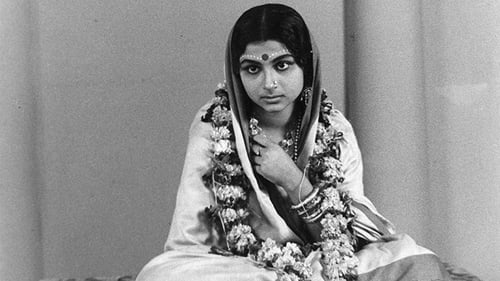
Producer
The life of a woman happily married to the son of an upper-class family in 19th century Bengal is turned upside down when her father-in-law has a vision that she is the Goddess Kali returned to earth. He convinces her to fulfill her role as a living deity and transform her house into a temple.

Screenplay
The life of a woman happily married to the son of an upper-class family in 19th century Bengal is turned upside down when her father-in-law has a vision that she is the Goddess Kali returned to earth. He convinces her to fulfill her role as a living deity and transform her house into a temple.

Director
The life of a woman happily married to the son of an upper-class family in 19th century Bengal is turned upside down when her father-in-law has a vision that she is the Goddess Kali returned to earth. He convinces her to fulfill her role as a living deity and transform her house into a temple.
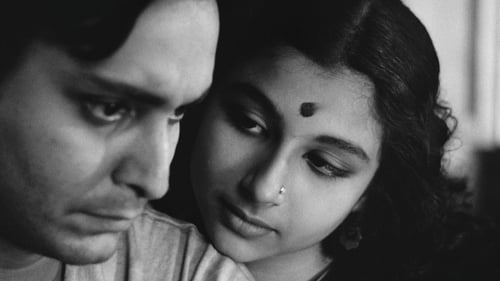
Producer
Apu is a jobless ex-student dreaming vaguely of a future as a writer. An old college friend talks him into a visit up-country to a village wedding...

Screenplay
Apu is a jobless ex-student dreaming vaguely of a future as a writer. An old college friend talks him into a visit up-country to a village wedding...

Director
Apu is a jobless ex-student dreaming vaguely of a future as a writer. An old college friend talks him into a visit up-country to a village wedding...
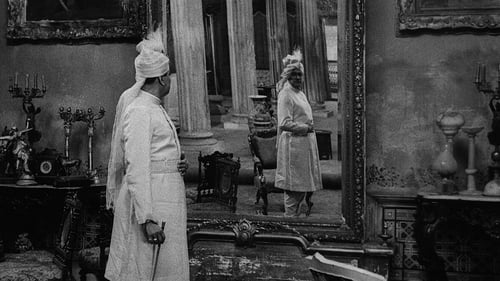
Screenplay
A wealthy landlord who lives a decadent life with his wife and son. His passion - his wife would call it his addiction - is music, and he spends a great deal of his fortune on concerts held for the locals in his magnificent music room. He feels threatened by his neighbour, a commoner who has attained riches through business dealings. His passion for music and quest for social respect are his undoing, as he sacrifices his family and wealth trying to retain it.

Producer
A wealthy landlord who lives a decadent life with his wife and son. His passion - his wife would call it his addiction - is music, and he spends a great deal of his fortune on concerts held for the locals in his magnificent music room. He feels threatened by his neighbour, a commoner who has attained riches through business dealings. His passion for music and quest for social respect are his undoing, as he sacrifices his family and wealth trying to retain it.

Director
A wealthy landlord who lives a decadent life with his wife and son. His passion - his wife would call it his addiction - is music, and he spends a great deal of his fortune on concerts held for the locals in his magnificent music room. He feels threatened by his neighbour, a commoner who has attained riches through business dealings. His passion for music and quest for social respect are his undoing, as he sacrifices his family and wealth trying to retain it.

Original Music Composer
An underpaid middle-aged clerk finds a stone that changes iron to gold on touch.

Screenplay
An underpaid middle-aged clerk finds a stone that changes iron to gold on touch.

Director
An underpaid middle-aged clerk finds a stone that changes iron to gold on touch.
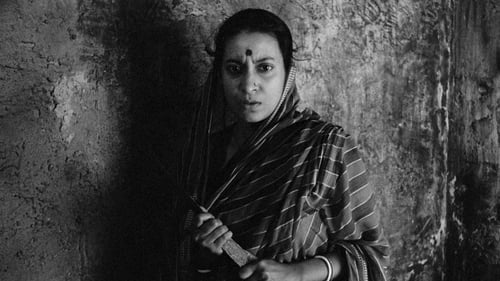
Producer
Aparajito picks up where the first film leaves off, with Apu and his family having moved away from the country to live in the bustling holy city of Varanasi (then known as Benares). As Apu progresses from wide-eyed child to intellectually curious teenager, eventually studying in Kolkata, we witness his academic and moral education, as well as the growing complexity of his relationship with his mother. This tenderly expressive, often heart-wrenching film, which won three top prizes at the Venice Film Festival, including the Golden Lion, not only extends but also spiritually deepens the tale of Apu.

Screenplay
Aparajito picks up where the first film leaves off, with Apu and his family having moved away from the country to live in the bustling holy city of Varanasi (then known as Benares). As Apu progresses from wide-eyed child to intellectually curious teenager, eventually studying in Kolkata, we witness his academic and moral education, as well as the growing complexity of his relationship with his mother. This tenderly expressive, often heart-wrenching film, which won three top prizes at the Venice Film Festival, including the Golden Lion, not only extends but also spiritually deepens the tale of Apu.

Director
Aparajito picks up where the first film leaves off, with Apu and his family having moved away from the country to live in the bustling holy city of Varanasi (then known as Benares). As Apu progresses from wide-eyed child to intellectually curious teenager, eventually studying in Kolkata, we witness his academic and moral education, as well as the growing complexity of his relationship with his mother. This tenderly expressive, often heart-wrenching film, which won three top prizes at the Venice Film Festival, including the Golden Lion, not only extends but also spiritually deepens the tale of Apu.
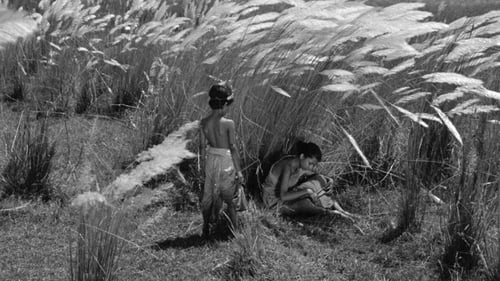
Producer
Impoverished priest Harihar Ray, dreaming of a better life for himself and his family, leaves his rural Bengal village in search of work.

Screenplay
Impoverished priest Harihar Ray, dreaming of a better life for himself and his family, leaves his rural Bengal village in search of work.

Director
Impoverished priest Harihar Ray, dreaming of a better life for himself and his family, leaves his rural Bengal village in search of work.
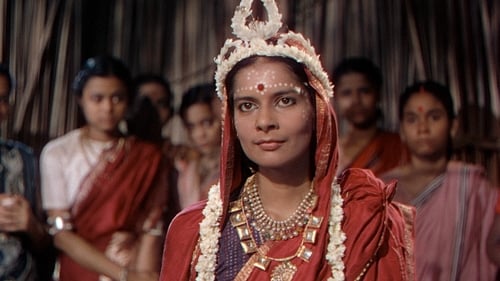
Assistant Director
Director Jean Renoir’s entrancing first color feature—shot entirely on location in India—is a visual tour de force. Based on the novel by Rumer Godden, the film eloquently contrasts the growing pains of three young women with the immutability of the Bengal river around which their daily lives unfold. Enriched by Renoir’s subtle understanding and appreciation for India and its people, The River gracefully explores the fragile connections between transitory emotions and everlasting creation.

Story
Based on a story by Satyajit Ray


